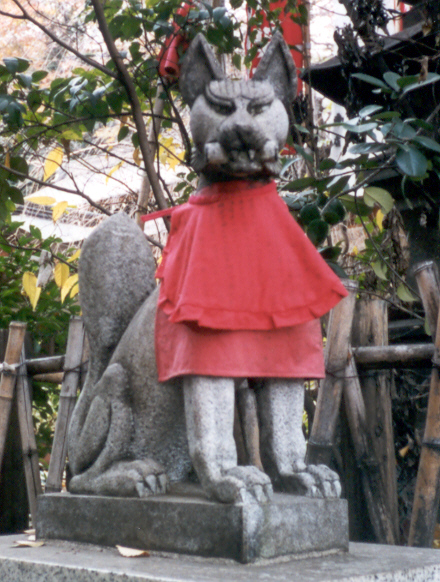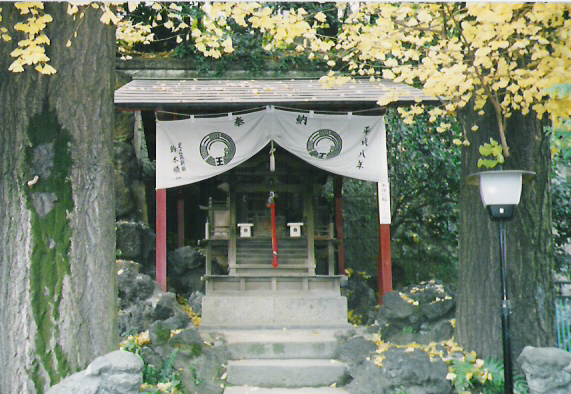With its striking cascade of bright orange columns, Fushimi Inari-taisha in Kyoto is one of the most visited temples in Japan by foreign tourists. Visitors who flock with their Instagram accounts at the ready echo the temple’s social history as a site of veneration for hayarigami, what Michael Bathgate calls Japan’s “viral divinities.”

On October 25, Michael Bathgate (Saint Xavier University) will deliver the third annual Robert Morrell Memorial Lecture in Asian Religions on the subject of “Foxes, Gods, and Monsters in the Edo Anthropocene.” Bathgate is fascinated by the frequent appearance of foxes in Japanese folktales, where they are often not only tricksters and shapeshifters but also gods. He says that the agricultural god Inari was often identified with foxes and was “one of the most important of the hayarigami—to use the social media language of today, we might call them ‘trending gods’—in the urban landscapes of places like Edo (modern-day Tokyo).”
As Edo’s boundaries expanded to take over previously undeveloped spaces, foxes became “an apt symbol for the wild margins that urban sprawl and intensive agriculture were encroaching on and increasingly eliminating,” Bathgate says. Foxes, he notes, were known to keep grudges. He explains that scholarship has historically argued that courting favor with an agricultural god like Inari that was associated with foxes allowed one to “ritually recast one’s ecological relationship with one’s immediate environment as a social relationship with a tutelary god.”

Bathgate says this understanding of the ritual function of foxes is too simple and asks instead, what are the citizens of Edo actually doing with these shrines to foxes in the 1700s? At his lecture on October 25, he wants to suggest that these shrines have an interesting parallel “not in other pre-modern cultures, but in our own post-modern experience of the so-called Anthropocene,” the historical period that marks the beginning of major human impact on Earth’s ecosystems.
“I think that 18th-century urban dwellers in Japan and the climate strikers of today are struggling to come to terms with some fundamental paradoxes about the relationship between nature and culture,” he says, “a recognition that our ecological problems are ultimately social in nature.”
The Morrell Memorial Lecture in Asian Religions commemorates the work of the late Professor Emeritus Robert E. Morrell, a specialist in Japanese literature and Buddhism who taught at Washington University in St. Louis for 34 years. Morrell holds special significance for the campus, because he was the first professor to teach a course on Buddhism at the University. The annual lecture series commemorates his life work by bringing distinguished scholars of Asian religions to campus.
Come learn more about foxes and the anthropocene when Michael Bathgate gives the Robert Morrell Lecture in Asian Religions on Friday, October 25 at 4pm in the Women’s Building Formal Lounge.





